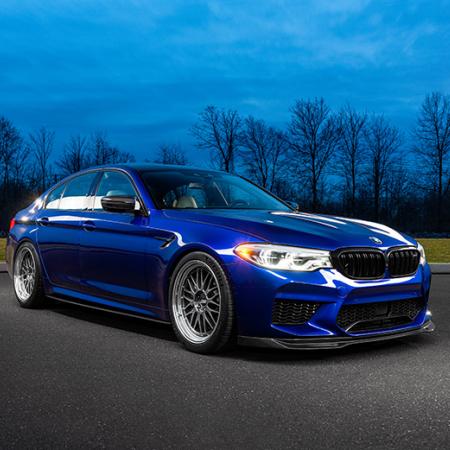No matter what an electric vehicle’s range may be, EV owners always want more. It’s called “range anxiety,” It’s a very real condition that causes EV owners to worry about getting into traffic jams, being rerouted by construction detours, and being thwarted by another EV—or worse, a gas burner—being parked in the only public charging station around.
BMW makes an electric vehicle that can give its owners range anxiety: the BMW i3. The base i3 only has about an 80-mile range on a full charge. That could be plenty, but then again, it might not be enough, depending on who knows what. BMW also builds the answer to range anxiety: the BMW i3 Range Extender (REx). A small gasoline engine that is not connected to the drivetrain can power up a generator to recharge the i3’s high-voltage batteries while the car is underway.
The i3 REx is nice, but it still burns gasoline, which, in the eyes of some purist EV’ers, is still a sin. It would be much more preferable if the i3 had a longer electric range to begin with.
They are in luck, according to Harald Krüger.
In an interview with the German weekly Zeit, BMW Group CEO Krüger said that the BMW i3 will indeed get a longer range next year. He didn’t say exactly when it would be available, or exactly how much more range it would have, or exactly how much it would cost. In fact, he didn’t say much of anything about it except that it’s coming next year.
Analysts have speculated that BMW is working on or will take advantage of advances in high-voltage lithium batteries to get more electric miles from their EVs and plug-in hybrids. The solution would have to be somewhere along those lines, since it is not likely that BMW would pack more of the same heavy batteries into the i3, or somehow make the i3 lighter than it already is.
While a longer-range i3 is good news, Krüger’s interview was more interesting as he talked about something else the BMW i3 would be getting: a big brother—or sister if you prefer. Krüger said there was another “i” model coming that would expand the BMW i line to three models: the i3, the i8, and a new and as yet unnamed vehicle.
Rumors have been rampant for two years that BMW was planning to build an i5—an electric sedan that would be larger than the i3 and capable of much longer trips without recharging. Krüger did not say the new i vehicle would be a true EV; it could be a plug-in hybrid, or it could even be an EV with a range extender motor like the i3, only bigger.
If the new i is a sedan and is all-electric, it would need at least a 250-mile range—preferably more—to challenge the Tesla Model S sedan. Why build a vehicle in the Tesla’s class if you’re not going to build it better?
A new i—whether it’s an i5 or whatever—would pretty much have to be an all-new vehicle. It probably wouldn’t be just a plug-in hybrid version of an existing BMW Model, since BMW is already doing that and that would not be news. The X5, 3 Series, and 7 Series PHEVs have already been announced or are on sale, and other PHEVs are on the way. These PHEVs attach an electric motor directly to the internal combustion engine and still run the power through conventional driveshafts and differentials.
Still, a new i vehicle could be a PHEV if the system is radical enough, as was the case with the BMW i8.
Almost certainly, the new i car would make extensive use of carbon fiber and aluminum to keep down the weight and help increase the range. Carbon fiber is rapidly becoming a BMW hallmark.
BMW has sold about 16,000 BMW i3s worldwide through the end of September this year, and around 4,000 BMW i8s. Longer-range i3s would almost certainly bump up those sales numbers.
With the BMW Group’s stated goal of selling more green cars, a new vehicle from BMW i would not just be likely, it would be mandatory. And according to Harald Krüger, it’s coming.—Scott Blazey
[Photos courtesy of BMW AG.]
















